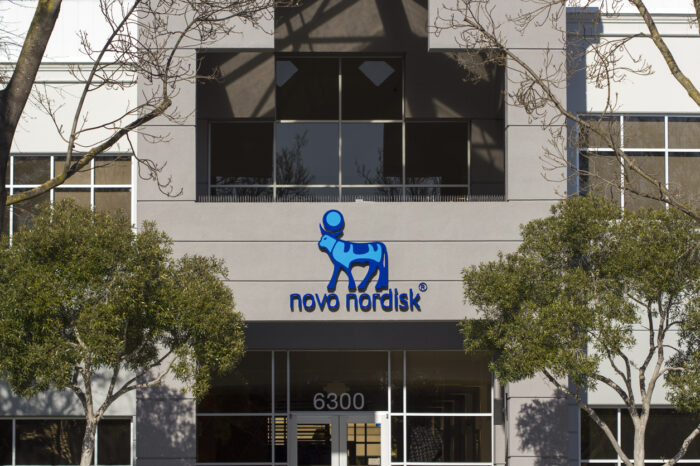The shares of pharmaceutical giants Novo Nordisk (NVO) and Eli Lilly (LLY) have stumbled slightly after a study linked active ingredients in drugs such as Wegovy, Ozempic and Zepbound to a rare blinding disorder known as non-arteritic anterior ischemic optic neuropathy (NAION).
Big Pharma Shares Trip After Top Drugs Linked To Rare Vision Impairments

Novo Nordisk was down 2.87% and Eli Lilly 0.95% when the final bell sounded on Wednesday 3 July 2024. US markets were closed on Thursday for the Fourth of July bank holiday.
Media reports indicated that researchers from a Harvard-affiliated hospital spearheaded the study and found that patients who used medicines containing GLP-1 and GIP receptors such as semaglutide and tirzepatide risked developing NAION. This condition limits blood flow to the optic nerve and may cause blindness.
Based on a Zacks report, the investigators believe that semaglutide-based NAION is four times more likely in diabetics and seven times more likely in obese people. They did, however, emphasise limitations to the study, such as a lower number of confirmed NAION cases using these treatments, which impacts statistical validity.
Don’t miss out the latest news, subscribe to LeapRate’s newsletter
According to Reuters data, Novo Nordisk maintained that the study’s data is insufficient to support a causative link between semaglutide and NAION. The Denmark-headquartered pharmaceutical firm also stated that NAION is not an “adverse drug reaction”.
Both Novo Nordisk and Eli Lilly took centre stage when US President Joe Biden and Senator Bernie Sanders criticised the companies for the high pricing of their weight-loss drugs. Previously, the US Food and Drug Administration (FDA) had looked into semaglutide and tirzepatide due to reports that they cause suicidal tendencies.
Despite these negatives, Novo Nordisk and Eli Lilly remain top-shelf performers in the ultra-competitive pharmaceutical market.